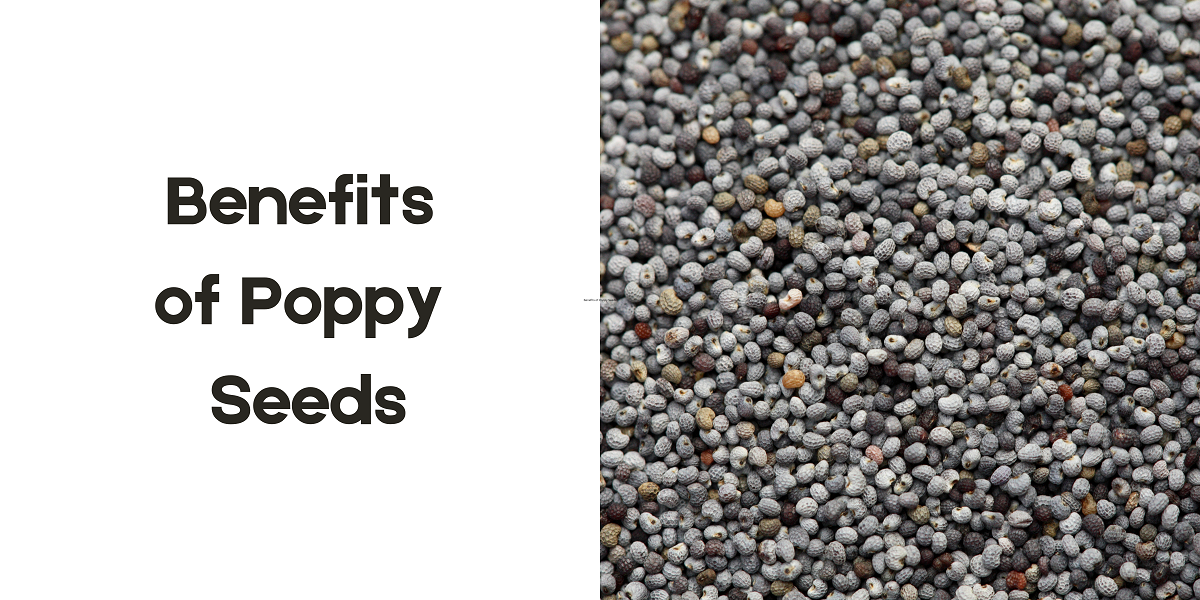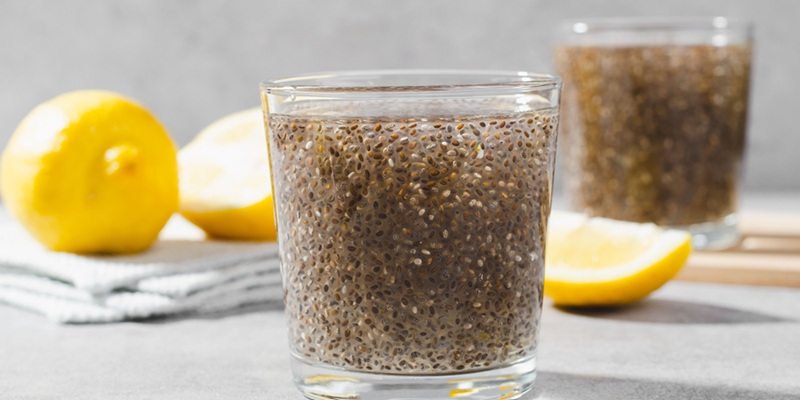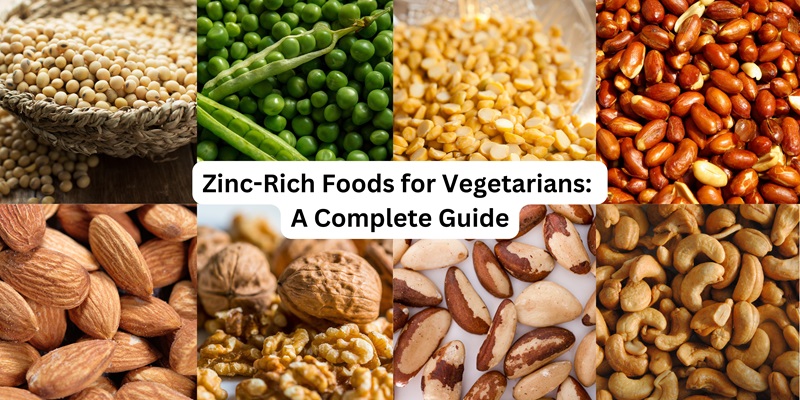Introduction
Poppy seeds, the tiny yet mighty culinary jewels, have been gracing our dishes for centuries, adding a delightful crunch and distinct nutty flavour. Derived from the opium poppy plant, these tiny black seeds are not just a decorative touch but also pack a surprising array of health benefits.
In this article, we will uncover the hidden health benefits of poppy seeds and explore why they deserve a place in your diet.
Benefits of Poppy Seeds
- Rich in Nutrients
Although poppy seeds are small in size, they are a powerhouse of essential nutrients. These seeds are an excellent source of minerals like calcium, magnesium, phosphorus and zinc, which are crucial for maintaining bone health and preventing osteoporosis. They also contain iron, which helps in the production of red blood cells and prevents anemia.
Poppy seeds are also rich in B-complex vitamins, including thiamin, niacin and folate. These vitamins play a vital role in energy production, nerve function and the synthesis of DNA. Furthermore, they are a good source of vitamin E, an antioxidant that protects cells from damage caused by free radicals.
- Promote Heart Health
Including poppy seeds in your diet can be beneficial for your heart health. These seeds are an abundant source of oleic acid, a monounsaturated fatty acid known for its heart-protective effects. Oleic acid helps reduce bad cholesterol levels (LDL) while increasing good cholesterol levels (HDL), which can lower the risk of heart disease and stroke.
Poppy seeds also contain dietary fiber, which aids in reducing cholesterol absorption in the intestines. High-fiber diets have been associated with a decreased risk of heart disease and improved cardiovascular health.
- Aid Digestion and Weight Management
Poppy seeds are an excellent source of dietary fiber, which plays a crucial role in promoting healthy digestion. Fiber adds bulk to the stool, preventing constipation and promoting regular bowel movements. Additionally, it helps maintain a healthy gut microbiota, which is essential for overall digestive health.
The high fiber content in poppy seeds also contributes to weight management. Foods rich in fiber tend to be more filling, which can help curb overeating and promote weight loss. Including poppy seeds in your meals or snacks can help you feel satiated for longer periods and manage your weight effectively.
- Boost Immunity
The zinc content in poppy seeds is essential for maintaining a healthy immune system. Zinc plays a vital role in immune cell development and function. It helps regulate the activity of various immune cells, including T cells and natural killer cells, which are responsible for defending the body against infections and diseases.
Incorporating poppy seeds into your diet can provide an additional boost to your immune system, helping you fight off common illnesses and keeping you healthy.
- Support Brain Health
Poppy seeds contain a compound called thiamin, also known as vitamin B1, which is crucial for maintaining proper brain function. Thiamin helps in the production of acetylcholine, a neurotransmitter that plays a key role in memory and cognitive function. Consuming foods rich in thiamin, such as poppy seeds, may help support brain health and improve cognitive performance.
Moreover, the presence of omega-3 fatty acids in poppy seeds contributes to brain health. These fatty acids are essential for the development and function of the brain and have been linked to a reduced risk of cognitive decline and neurodegenerative diseases.
Nutrition Fact of Poppy Seeds 100 gram
The nutritional composition of poppy seeds can vary slightly depending on the specific variety and growing conditions. Here’s an approximate breakdown of the nutrients in 100 grams of poppy seeds.
Calories: 525 kcal
Protein: 17.99 grams
Fat: 41.56 grams
Carbohydrates: 28.13 grams
Fibre: 19.5 grams
Sugars: 3.87 grams
Calcium: 1438 milligrams
Iron: 9.75 milligrams
Magnesium: 347 milligrams
Phosphorus: 870 milligrams
Potassium: 719 milligrams
Zinc: 7.89 milligrams
Copper: 1.64 milligrams
Manganese: 6.48 milligrams
It’s worth noting that while poppy seeds are a good source of certain nutrients, they are also high in calories and fat. So It’s important to consume them in moderation.






